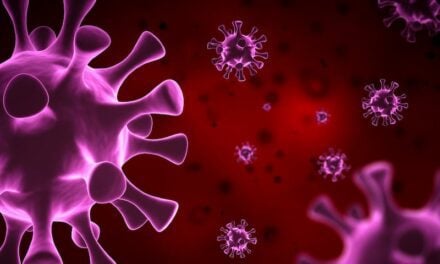While it appears that the U.S. and the world are turning the tide on COVID-19, there will likely be a relatively large patient population experiencing long-term effects from the virus. Clinical labs will be at the forefront of helping to identify the causes of these effects for years to come.
By Ronald A. Blum, PhD
Following the infection of over 32 million people in the U.S.1 and over 158 million worldwide2, there are a growing number of COVID-19 patients coming forward who continue to have a wide range of symptoms that are chronic, debilitating, and, in many cases, so severe that they are unable to return to work or normal day-to-day life. It is estimated that between 10-30% of COVID-infected patients fall into this chronic, post-acute category3,4. There are a number of terms to describe these patients, including “post-acute COVID,” “post-acute COVID syndrome,” “chronic COVID,” “long COVID,” “long-haul COVID,” and the recent research-focused term, “post-acute sequelae of SARS-CoV-2 infection” (PASC)5.
More specifically, the CDC defines “post-COVID conditions” as health issues which persist more than four weeks from the time the patient is first infected with COVID-195. The term “long COVID” describes a range of symptoms that can last weeks or months following initial infection, and chronic or post-COVID syndrome is described as lasting beyond 12 weeks6. Among patients suffering from the effects of long COVID, the term “long hauler” is commonly accepted3,7.
Long COVID does not appear to correlate with the severity of the illness, and the condition can affect multiple organ systems including pulmonary, hematologic, cardiovascular, neuropsychiatric, renal, endocrine, gastrointestinal and hepatobiliary and dermatologic6. Patients report a wide range of symptoms including5:
- Fatigue
- “Brain fog”
- Headache
- Loss of taste or smell
- Dizziness upon standing
- Heart palpitations
- Cough
- Chest pain
- Difficulty breathing
- Joint or muscle pain
- Depression
- Anxiety
- Fever
- Worsening of symptoms after physical or mental activity
Similar persistent symptoms were seen in the survivors of previous coronavirus outbreaks, including the SARS epidemic of 2003 and the Middle East Respiratory Syndrome (MERS) epidemic of 2012. It is believed that multiple factors contributed to the post-acute symptoms, and these may have been a consequence of damage done to various organ systems due to a combination of heightened inflammatory cytokine production and a pro-coagulant state6.
Nevertheless, because the symptoms of long COVID are so heterogenous, it has been difficult to diagnose and characterize these long-haulers, and patients often feel marginalized or ignored. One such patient, Kate Porter, has been suffering from chronic COVID for over a year.
“I became a long hauler in March of 2020. I’ve been struggling with chronic daily headaches/neuralgia and fever every day for over 6 months. With endless normal test results, I realized there had to be something more going on in my body,” she says.
Kate ended up co-founding “C19 Recovery Awareness” (https://www.c19recoveryawareness.com/), a resource center for COVID long-haulers.
“I used my digital experience to grow awareness around those of us who were experiencing symptoms for far longer than the two weeks, as stated by the CDC,” she says. “The site I created was my answer to the thousands of people with similar experiences, who were separately searching for resources and info for themselves and for those who may not understand or believe their experience. My hope is that the great research being done around long COVID, can be better applied in the clinical setting. Right now, we have a grassroots movement of patients trying to educate their doctors on this research, in hopes they can receive better treatment, but we need the doctors to be better armed with this information.”
Just as advocacy groups spearheaded the push to develop testing, therapies and legislation around HIV in the 1990s, chronic COVID patient groups like “C19 Recovery Awareness” are emerging around the world, and are an important driver for change.
In December 2020, Congress appropriated $1.15 billion in funding over the next four years to the National Institutes of Health (NIH) for research into the chronic and long-term health consequences of COVID infection8. There is also bi-partisan legislation proposed by Congressmen Don Beyer (D-VA) and Jack Bergman (R-MI) that would help those individuals suffering from long-term COVID.
In April they announced their intention of introducing the “COVID-19 Long Haulers Act,” which would aim to improve the lives of long-haulers through education of patients and clinicians about long COVID, as well as funding research to better understand the etiology of the condition and identify effective treatments9.
Clinical testing for COVID long haulers
Just as laboratory testing was critical in helping to accurately diagnose acute COVID, lab testing is likely to play an ever increasingly important role in objectively diagnosing, characterizing, and identifying the cause of chronic COVID, as well as providing a path toward a more precision medicine approach to treatment. An article in the British Medical Journal suggests that clinical testing may help to identify causes of continuing symptoms, and, importantly, to exclude serious conditions such as pulmonary embolism or myocarditis10. Clinical lab testing for chronic COVID includes such assays as:
- Complete Blood Count
- Electrolytes
- Liver and Renal function
- Troponin
- C-reactive protein
- Creatine kinase
- D-dimer
- Brain natriuretic peptides
- Ferritin
Another diagnostic approach has taken a deeper look into specific immune-based signals that may be persistently abnormal in chronic COVID. For example, IncellDx, a global diagnostics company focusing on immunology and cancer, has developed a research use only (RUO) kit aimed at better characterizing COVID long-haulers from the immunological perspective. The incellKINETM kit was developed through clinical studies of acute and chronic COVID patients, and utilized AI and machine learning to identify a novel subset of cytokines and chemokines that most accurately distinguished long haulers from normal and acute COVID patients11,12.
Bruce Patterson, MD, the CEO of IncellDx, explains in more detail.
“Our unique COVID-19 specific cytokine/chemokine panel incellKINE was applied and analyzed using machine learning and AI to develop a unique severity score for acute COVID and long hauler index for PASC,” he says. “These non-subjective measures can help guide selection of therapies while also providing a numeric assessment of response. A disease spectrum as complicated as COVID-19 demands precision medicine to optimize the path to recovery.”
The incellKINE kit has been validated by CLIA laboratories, and is offered as a laboratory developed test (LDT) to better identify and characterize immunological abnormalities in chronic COVID patients. The profile may help researchers and clinicians identify which biomarkers are out of normal range and thereby provide guidance as to which drugs may be useful for effective treatment. This approach is one of many being explored by public and private institutions to deal with the millions of long-hauler patients in the U.S. and worldwide.
COVID recovery programs
As the number of patients with debilitating symptoms due to chronic COVID grows, so do the number of COVID recovery programs across the country. These have largely been associated with major medical institutions including Cedars Sinai, NYU Langone, Hackensack Meridian Health, Mount Sinai, Emerson, and WMC Health, among others. These programs vary in their approach, but offer combinations of counseling, physical therapy, and other rehabilitation programs to help alleviate specific symptoms the patient may be experiencing.
One virtual program, the Chronic COVID Treatment CenterTM (www.covidlonghaulers.com), is taking an integrated, precision medicine approach. This center was formed as a collaboration between prominent research facilities, clinicians, and medical laboratories, to integrate world-class specialized immunological lab testing, expert medical consultation, and patient counseling, to help optimize treatment for both the physical and emotional aspects of patients recovering from COVID-19.
The center utilizes molecular diagnostics developed by IncellDx to quantitatively measure biomarkers of the immune system that may be abnormally elevated or suppressed. The center offers telemedicine consultations between the patient, their physician, and expert physicians at the center, to discuss the patient’s laboratory test results, clinical symptoms and medical history to tailor therapy specific to that patient.
Ram Yogendra, MD, MPH board-certified anesthesiologist, medical director for ECA Wellness in Rhode Island, and member of the Chronic COVID Treatment Center, explains: “By the summer of 2020, we realized that PASC was emerging as a medical and public health crisis. Our team decided to create a collaborative program to address this immediate medical need by offering treatment solutions to patients and their physicians based on our continuing research”
Another member of the Chronic COVID Treatment Center, Purvi Parikh, MD, allergist and immunologist at Allergy and Asthma Associates at Murray Hill, and faculty at New York University School of Medicine, was eager to take a precision medicine approach to help long haulers.
“In a disease such as COVID where presentation of the virus is so varied, long haulers are no different,” she says. “It is nice we are able to personalize immune profiles for each patient and shed light on what may be causing their symptoms”
Future of chronic COVID
As the pandemic continues around the world, there will clearly be an increasing number of patients with chronic sequelae as a result of COVID infection. Research is ongoing to better understand the etiology of chronic COVID, and new laboratory diagnostics are being developed to better identify and characterize these patients and their unique immunological and physiological response to the infection. Laboratory diagnostics will no doubt continue to play a vital role in the effective management and successful treatment of these patients.
About the author
With over 25 years’ experience in clinical laboratories, diagnostics and clinical trials, Ronald A. Blum, PhD, has helped companies drive growth, expand into new markets and increase profitability and valuation. He has been instrumental in bringing to market hundreds of new and enhanced assays in the fields of oncology, genetics, allergy and immunology, cardiology, hematology, endocrinology, neurology, infectious disease, gastroenterology, rheumatology, and women’s health. He has served in senior leadership roles at major clinical laboratories and diagnostic companies such as Specialty Laboratories, DiagnoCure Oncology, Exiqon Diagnostics, Pathology, Inc. and RDL Reference Laboratories. He currently serves as Chief Marketing Officer for IncellDx, a leading global immunology and cancer diagnostics company, and is Chief Executive Officer for Blum & Associates Consulting, LLC. Blum has lectured internationally on the latest developments in personalized medicine, biotechnology, and laboratory science, and has published extensively. He serves as Editorial Advisor to Clinical Lab Products magazine, is on the Board of Directors for the California Medical Technology Association Education & Research Corporation, and has been an advisor on the Molecular and Oncology Advisory Boards for Roche Diagnostics. He has also served as a judge for the prestigious International Health & Medical Media Awards. Blum received his bachelor of science degree in biology from UCLA before attending UCLA’s School of Dentistry. After completing two years with honors, he switched fields and obtained his master of science degree in physics from California State University, Northridge, and then earned his PhD in biophysics from UC Berkeley.
References
- COVID Data Tracker. Centers for Disease Control and Prevention. 2021 https://covid.cdc.gov/covid-data-tracker/#datatracker-home
- WHO Coronavirus (COVID-19) Dashboard. World Health Organization. 2021. https://covid19.who.int/
- Rubin R. As Their Numbers Grow, COVID-19 “Long Haulers” Stump Experts. JAMA. 2020;324(14):1381–1383. doi:10.1001/jama.2020.17709
- Logue, JK., et al. Sequelae in Adults at 6 Months after COVID-19 Infection. JAMA Network Open. 2021;4(2):e210830. doi:10.1001/jamanetworkopen.2021.0830
- Post-COVID Conditions: Information for Healthcare Providers. Centers for Disease Control and Prevention. April 8, 2021. https://www.cdc.gov/coronavirus/2019-ncov/hcp/clinical-care/post-covid-conditions.html
- Nalbandian A., et al. Post-acute COVID-19 syndrome. Nature Medicine 2021;27:601-615. https://doi.org/10.1038/s41591-021-01283-z
- Berg, S. COVID long-haulers: Questions patients have about symptoms. American Medical Association April 5, 2021. https://www.ama-assn.org/delivering-care/public-health/covid-long-haulers-questions-patients-have-about-symptoms
- Collins, F. NIH launches new inititative to study “Long COVID” National Institutes of Health Feb. 23, 2021. https://www.nih.gov/about-nih/who-we-are/hin-director/statements/nih-launches-new-initiative-study-long-covid
- Beyer, Bergman Announce Introduction Of Bipartisan COVID-19 Long Haulers Act. April 21, 2021. Beyer.house.gov
- Greenhalgh T, et al. Management of post-acute COVID-19 in primary care. BMJ 2020;370:m3026BMJ 2020;370:m3026 doi:10.1136/bmj.m3026]
- Patterson BK, et al. CCR5 Inhibition in Critical COVID-19 Patients Decreases Inflammatory Cytokines, Increases CD8 T-Cells, and Decreases SARS-CoV2 RNA in Plasma by Day 14. Intl J Infect Dis 2020 doi: https://doi.org/10.1016/j.ijid.2020.10.101
- Patterson BK, et al. Immune-Based Prediction of COVID-19 Severity and Chronicity Decoded Using Machine Learning. BioRxiv 2020 doi: https://doi.org/10.1101/2020.12.16.423122





